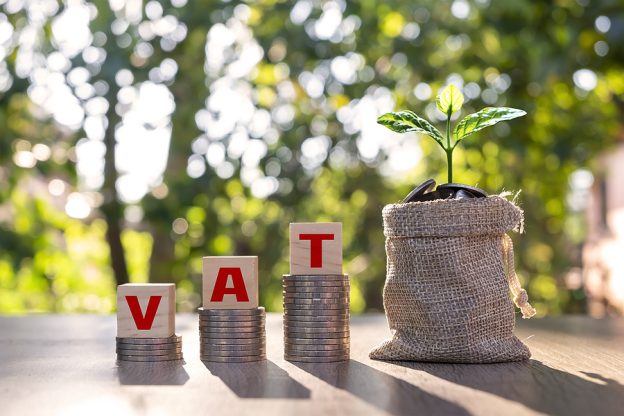
The domestic reverse-charge VAT scheme has been applicable to businesses in the construction industry since March this year, after several delays.
Unfortunately, HMRC’s VAT repayments aren’t getting back into businesses’ bank accounts within their 30 day deadline. HMRC has confirmed that there will be compensation available for some companies.
The delays have been caused due to the severe pressure that has been put on HMRC because of Covid-19. HMRC has understandably been unable to maintain the same service levels whilst dealing with the various schemes that they have had to administer due to the Covid-19 pandemic.
Compensation from HMRC for VAT
If you’re VAT registered and working in the Construction Industry Scheme, you’ll already know all about the ‘Construction Services Domestic Reverse Charge’. Whether you’re a subcontractor or contractor, the new VAT collection rules affect you. And you’ve had to implement some significant changes to your accounts.
Now you may also be in the position of waiting an extremely long time to receive your payment from HMRC. Build UK met with HMRC to discuss the negative impact this delay has on cashflow.
Their spokesperson said: “Multiple members have experienced slow payment by HMRC, which has caused cashflow pressures. In response, HMRC has confirmed it will compensate companies where payments take longer than 31 days.
“HMRC also said that companies that had deferred their VAT and still had outstanding payments could contact HMRC to stop VAT payments being offset.”
This is a reassuring clarification of the situation. HMRC’s spokesperson said that they intend to make payments to taxpayers in 30 days from receipt of a VAT return.
They also said: “In most cases, claims are paid within five working days of receipt of the return. However, if we select it for verification checks, this could take 30 days or longer, dependent upon how long it takes the customer to provide the information requested to verify the return.
“When there is a delay, we may offer a form of compensation known as ‘repayment supplement’. This is based on the length of time it takes to verify and pay the claim, excluding any delays from the customer or their agent.”
Am I supposed to be applying reverse VAT?
The new reverse VAT rule applies to you if:
- You’re a contractor registered with the Construction Industry Scheme (CIS)
- You’re a subcontractor registered with the CIS
- And you’re VAT registered in the UK
Subcontractors don’t add VAT to the bill they give the main contractor anymore. But you do include the reverse VAT amount. Effectively the contractor collects the VAT for the subcontractor, and HMRC repays the VAT subcontractors pay on their costs.
So, if you’re a subcontractor, you no longer get VAT include in your payment from the main contractor. This has the potential to be quite a serious cashflow issue, especially if HMRC are consistently late.
HMRC’s confirmation that compensation is possible is recognition that they understand the severity of this impact.
Why did HMRC change the VAT rules in the first place?
The introduction of reverse VAT to the construction industry is part of HMRC’s fight against tax fraud. Specifically, when businesses add VAT to their bill, are paid the extra 20% or 5%, and then never pay that amount to HMRC. It just becomes more profit for them and direct theft from the Treasury.
HMRC hopes that making the main contractors the VAT collectors will eliminate the potential for this kind of fraud. VAT registered subcontractors can no longer add VAT to their bills, and so can’t disappear without paying HMRC.
If you’re a VAT registered, CIS contractor or subcontractor, we can help you sort through the implications of this new rule. We can’t do anything about HMRC’s speed, but we can make sure that you don’t miss out on anything you should be refunded for. And get all your paperwork sorted.





